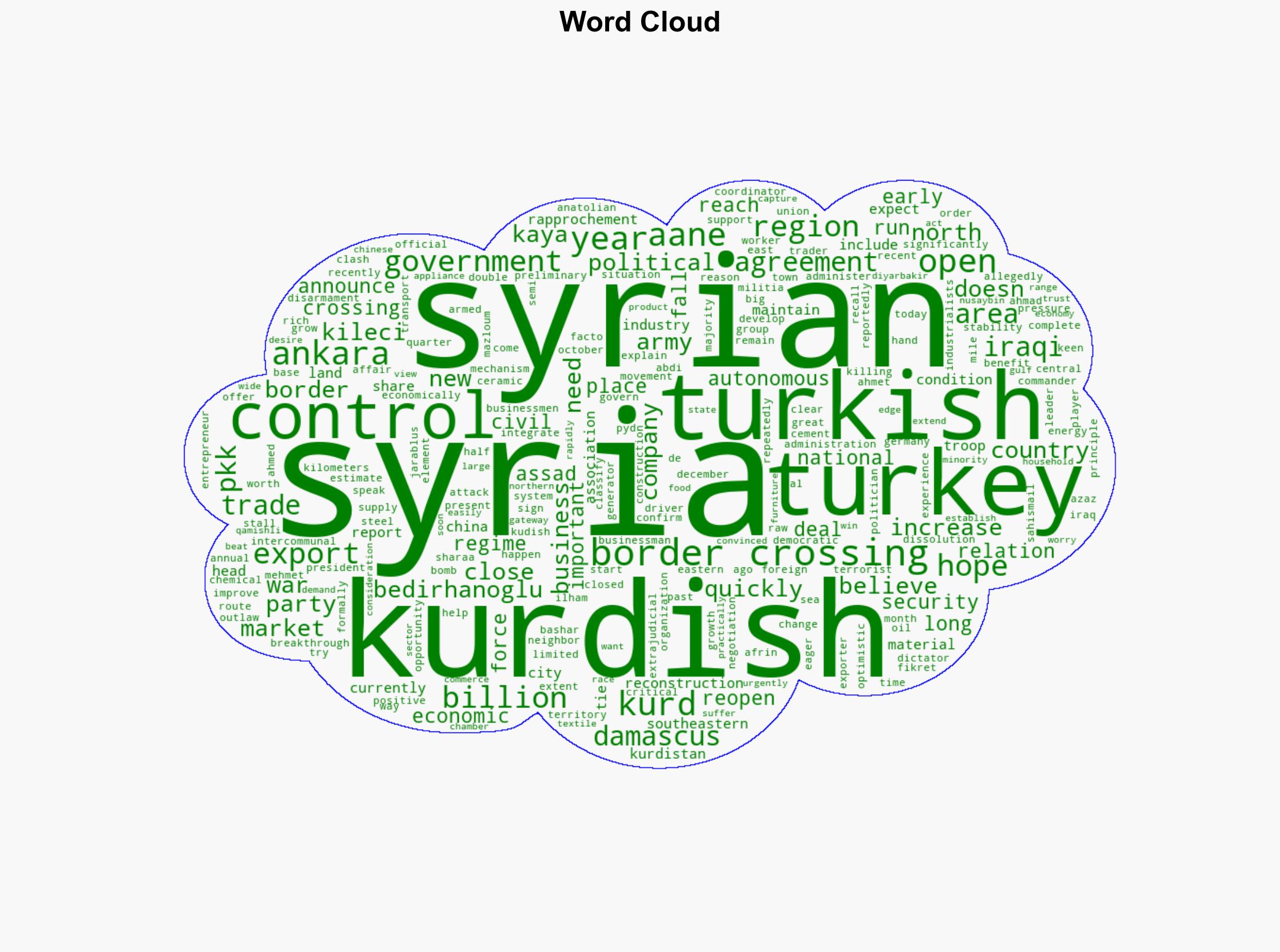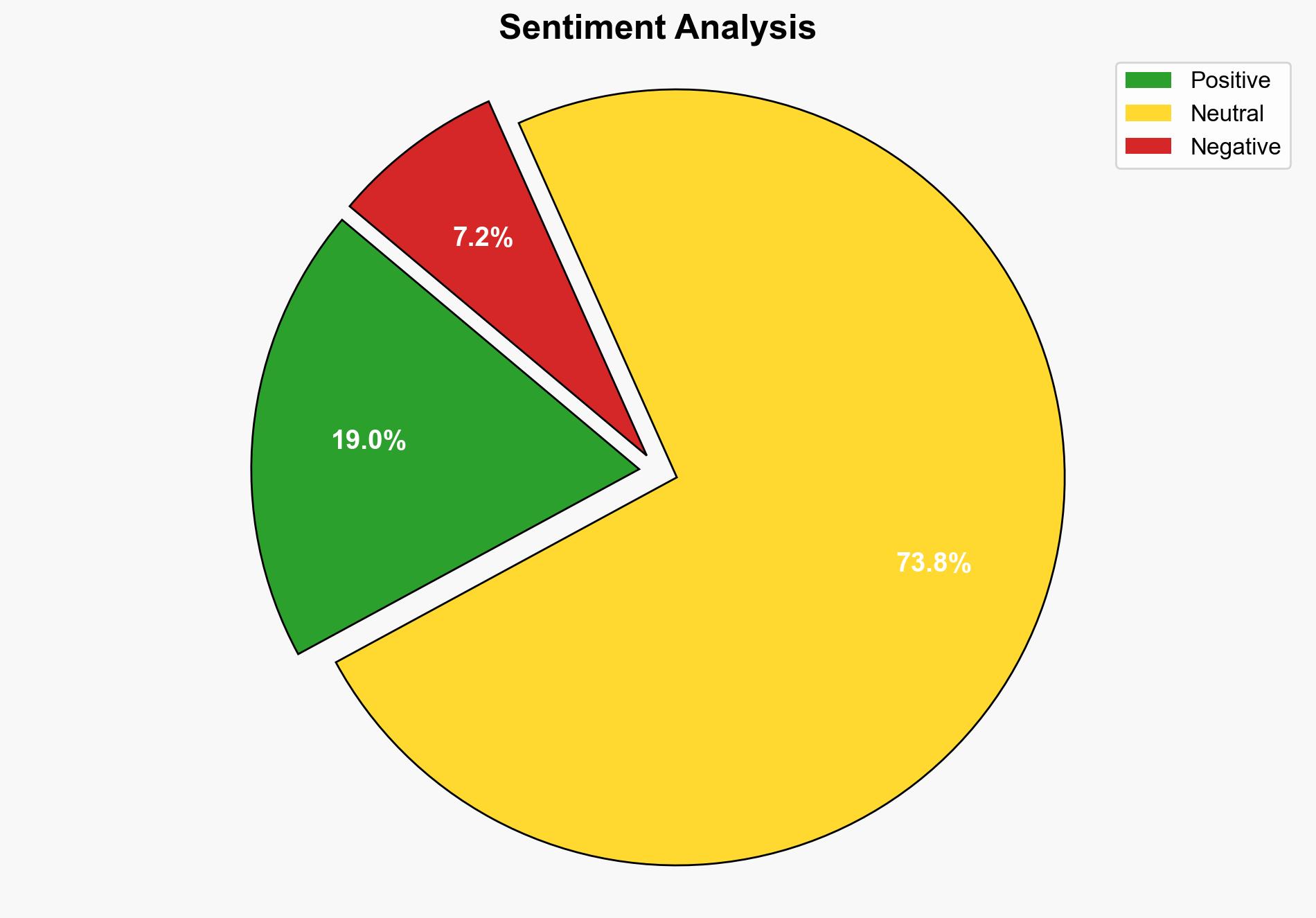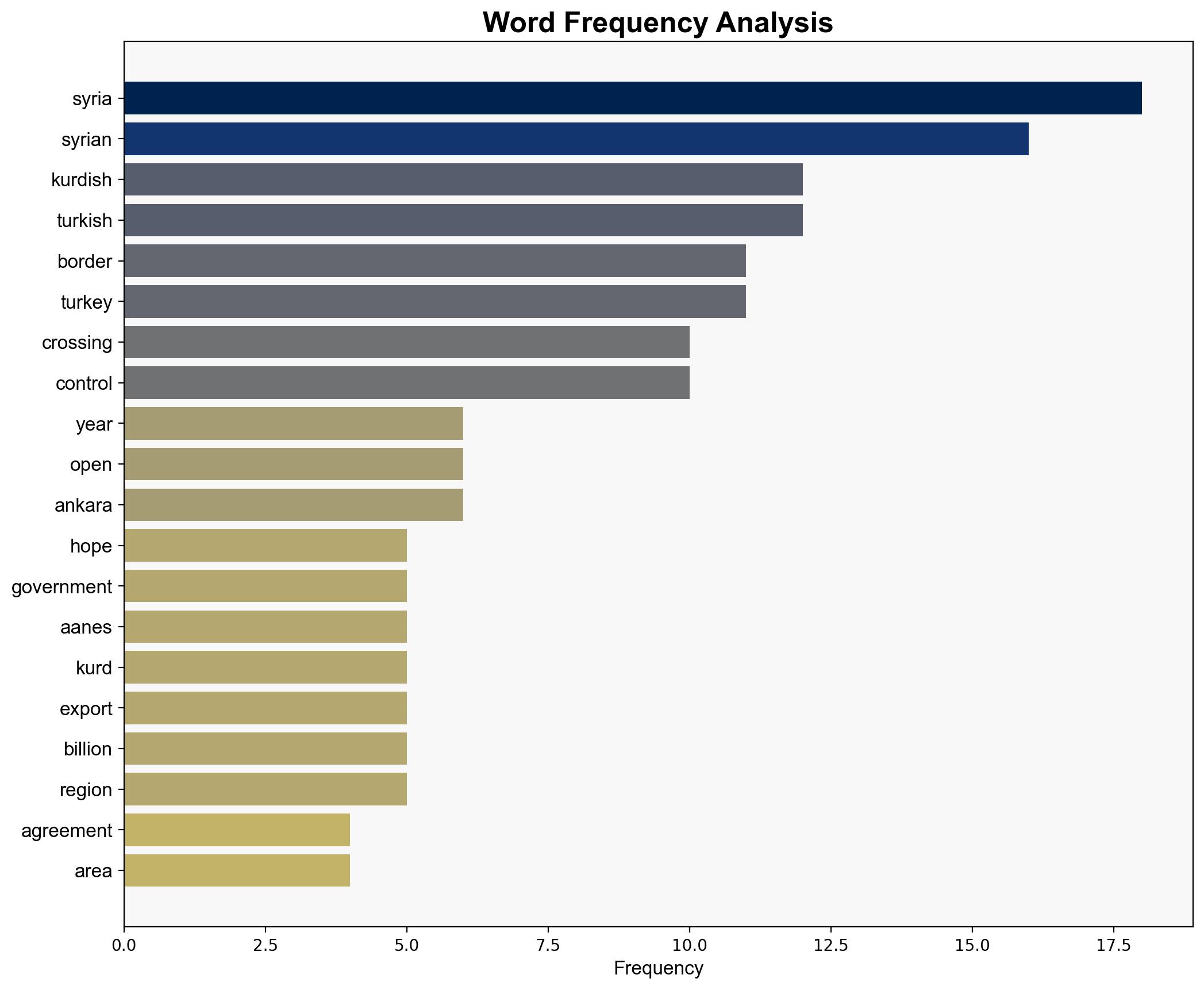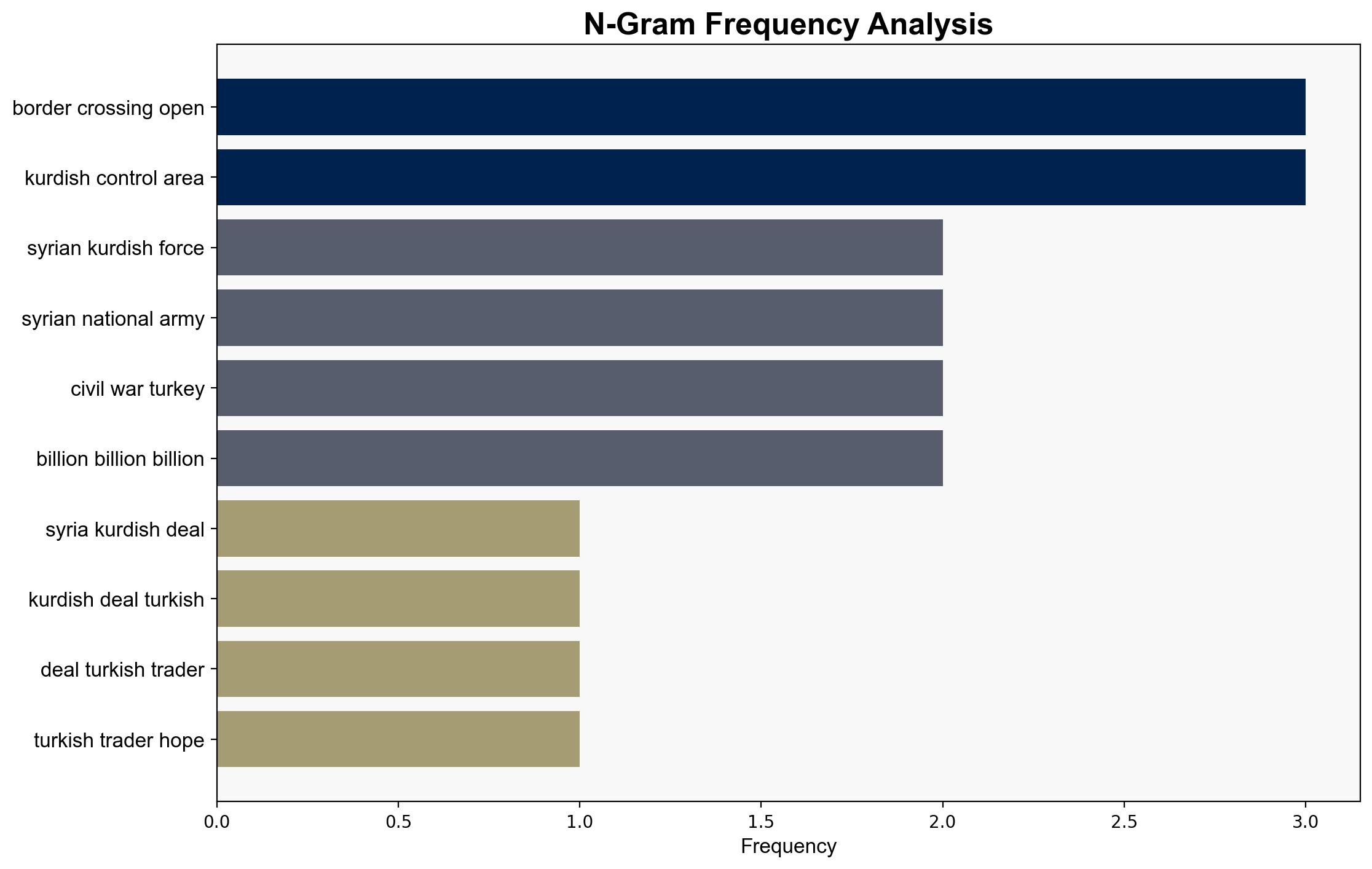Syria-Kurdish deal Turkey hopes to boost trade with Kurdish regions – DW (English)
Published on: 2025-10-22
Intelligence Report: Syria-Kurdish deal Turkey hopes to boost trade with Kurdish regions – DW (English)
1. BLUF (Bottom Line Up Front)
The strategic judgment is that Turkey’s efforts to boost trade with Kurdish regions in Syria are likely contingent on political stability and security assurances. The most supported hypothesis is that Turkey will leverage economic incentives to influence Kurdish political alignment, with a moderate confidence level. Recommended action includes monitoring the political developments and border security dynamics closely to anticipate shifts in trade and regional alliances.
2. Competing Hypotheses
1. **Hypothesis A**: Turkey aims to use economic engagement as a tool to stabilize the region and integrate Kurdish areas into a broader economic framework, thereby reducing tensions and fostering cooperation.
2. **Hypothesis B**: Turkey’s economic overtures are primarily a strategic maneuver to exert political influence over Kurdish regions, potentially undermining Kurdish autonomy and aligning them closer to Turkish interests.
Using the Analysis of Competing Hypotheses (ACH) 2.0, Hypothesis B is better supported due to Turkey’s historical stance on Kurdish autonomy and its strategic interests in controlling border security and regional influence.
3. Key Assumptions and Red Flags
– **Assumptions**: Turkey assumes that economic incentives will be sufficient to sway Kurdish political alignment. It also assumes that reopening border crossings will not face significant resistance from Kurdish authorities or other regional actors.
– **Red Flags**: The potential for Kurdish resistance to Turkish influence, especially given historical tensions. The reliance on political stability in Syria, which remains uncertain.
– **Blind Spots**: The impact of external actors (e.g., Russia, the U.S.) on the Kurdish-Turkish dynamic and their potential to disrupt or support Turkey’s plans.
4. Implications and Strategic Risks
– **Economic Risks**: Failure to stabilize the region could lead to economic losses and increased tensions, affecting Turkish businesses.
– **Geopolitical Risks**: Increased Turkish influence may provoke reactions from other regional powers, potentially escalating into broader conflicts.
– **Security Risks**: Border security remains a critical issue, with potential for clashes or terrorist activities if not managed carefully.
5. Recommendations and Outlook
- Monitor political negotiations between Kurdish forces and the Syrian government to anticipate shifts in regional power dynamics.
- Engage in diplomatic efforts to ensure that economic initiatives are coupled with security guarantees to prevent destabilization.
- Scenario Projections:
- **Best Case**: Successful integration of Kurdish regions into Turkey’s economic sphere, leading to regional stability.
- **Worst Case**: Breakdown of negotiations leading to renewed conflict and economic isolation of Kurdish regions.
- **Most Likely**: Gradual economic engagement with intermittent political and security challenges.
6. Key Individuals and Entities
– Mazloum Abdi
– Ilham Ahmed
– Ahmad al-Sharaa
– Sahismail Bedirhanoglu
– Ahmet Fikret Kileci
7. Thematic Tags
national security threats, regional focus, economic diplomacy, border security, geopolitical strategy




